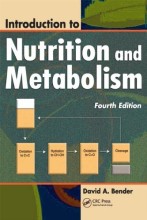Psychobiology of Food Choice and Eating Behaviour - Food reward and hedonic eating
9 important questions on Psychobiology of Food Choice and Eating Behaviour - Food reward and hedonic eating
1. Thrifty genes hypothesis
'thrifty genes' and ancestral hunter-gatherers:
- individuals who ate only when experiencing a short-term intrameal deficit in energy would not have been prepared for longer periods of deprivation.
- modern man is equipped with both chemosensory, GI systems and brain circuitry to favour the intake of nutritionally high-dense foods, where upward deflections are not compensated for.
3. Hunger and palatability paradox
What is the nature of palatability? -> 2 groups of theories
- Palatability reflects need-state for the nutrient predicted by sensory properties of the ingestant
- e.g., liking for sweet tastes when hungry is expression of energetic need
- Palatability is related to reward processes (wanting+liking) that (in part) operate independent from need-state
- e.g., liking for sweet tastes is expression of (acquired) oro-sensory reward independent from energetic need (learning)
What are food rewards?
A reward is any stimulus which generates positive affective experiences
- food reward can be physiological, cognitive, emotional and/or social
- e.g., sweet taste, feeling comfortably full or feeling relaxed
- Higher grades + faster learning
- Never study anything twice
- 100% sure, 100% understanding
How do changes in reward come about?
How to measure food liking?
- VAS-scale: how much do you like or dislike product?
- facial expressions
- taste-reactivity test
How to measure food wanting?
- VAS-scale: how much do you want to eat this product right now? BUT people don't know the difference between liking and wanting and fill in the same answer as liking
- behavioural measures: approach, effort, willingness to work
What is reward sensitivity?
individual differences in:
- relative reinforcing value of food (RRVfood)
>> people with higher RRVfood consume more calories when food is freely available than those with low RRVfood
What is delayed reward discounting (DRD)?
>> individuals ability to delay gratification (marshmellow experiment)
How to make a delayed reward gratifying?
- Learned food-reward associations
- Stability of food-reward over repeat consumption
- Cueing of positive rewarding experiences of food products
The question on the page originate from the summary of the following study material:
- A unique study and practice tool
- Never study anything twice again
- Get the grades you hope for
- 100% sure, 100% understanding





























